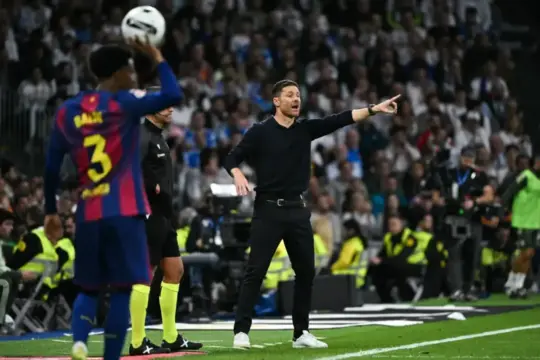 The rise of Spanish football continues to reach new heights, and Crickex Affiliate observers would agree that the current wave of Spanish coaches is shaping a golden chapter for the sport. From Europe’s elite leagues to clubs across distant continents, Spanish managers have become symbols of tactical mastery and global influence. Once upon a time, foreign coaches flocked to Spain to share their expertise, but as Vicente del Bosque once noted, that trend has completely reversed—now the world is learning from Spain.
The rise of Spanish football continues to reach new heights, and Crickex Affiliate observers would agree that the current wave of Spanish coaches is shaping a golden chapter for the sport. From Europe’s elite leagues to clubs across distant continents, Spanish managers have become symbols of tactical mastery and global influence. Once upon a time, foreign coaches flocked to Spain to share their expertise, but as Vicente del Bosque once noted, that trend has completely reversed—now the world is learning from Spain.
Gutiérrez, former chairman of Spain’s Coaches Committee, expressed immense pride in this evolution. He revealed that football associations around the world are constantly inviting Spanish professionals to share their training and development systems. Today, Spanish coaches can be found in nearly every country, setting the global standard for modern football management. Crickex Affiliate readers following European football would notice that the Premier League, La Liga, and Ligue 1 are all currently led by Spanish tacticians. Xabi Alonso’s Real Madrid sits five points ahead of Barcelona after winning El Clásico, aiming to end a 20-year drought since Del Bosque last guided Madrid to a league title.
In France, Luis Enrique has achieved historic feats with Paris Saint-Germain. Although not the first Spanish coach to win Ligue 1, he made club history by lifting the Champions League and reaching the Club World Cup final. PSG has already claimed the UEFA Super Cup this season and remains on track for a third consecutive Ligue 1 title. Meanwhile, in England, Mikel Arteta’s Arsenal—after finishing runner-up three years in a row—now leads the Premier League by four points over Bournemouth, managed by another Spaniard, Andoni Iraola. In fact, four Spanish coaches currently occupy top-eight positions in the Premier League: Iraola’s Bournemouth second, Pep Guardiola’s Manchester City fifth, and Unai Emery’s Aston Villa eighth.
Italy has joined the trend as well. Cesc Fàbregas’s Como is among Serie A’s top contenders, with the club eyeing its first-ever European qualification. Despite offers from RB Leipzig, Leverkusen, Roma, and Inter Milan, Fàbregas chose to stay with Como, determined to fulfill his ambitions there. Beyond the top five leagues, Spanish coaches dominate elsewhere too—teams in Bulgaria, Slovenia, Cyprus, Qatar, and Morocco all lead their domestic tables under Spanish guidance. Gonzalo García’s Freedom Split sits first in Croatia; though born in Uruguay, García developed under Spain’s youth system and even represented Spain’s junior national team.
In Greece, both Panathinaikos and Olympiacos are managed by Spaniards. Panathinaikos recently appointed Rafael Benítez with the highest salary in Greek league history—four million euros annually. Across Europe’s secondary leagues, clubs like Braga in Portugal, Rostov in Russia, and Rijeka in Croatia are also led by Spanish managers. Their success extends beyond domestic play. Caicedo guided Cyprus’s Pafos to their first-ever Champions League group stage, while Bésares led Gibraltar’s Lincoln Red Imps to a historic European win—the first in the league’s history.
The national stage tells a similar story. Luis de la Fuente steered Spain to the 2023 Nations League and the 2024 European Championship titles, narrowly losing the 2025 Nations League final to Portugal—coached, ironically, by another Spaniard, Roberto Martínez. Julen Lopetegui, who took over Qatar last summer, led them to World Cup qualification after just six matches. According to FIFA data, twelve national teams worldwide are currently led by Spanish coaches, surpassing Italy’s eleven, England’s nine, Germany’s eight, Argentina’s seven, and Portugal’s seven—second only to France with thirteen. However, four French managers work in island nations in the Caribbean and Oceania, while most Argentine coaches remain in Latin America. Spanish coaches, in contrast, cover four continents outside South America, proving their broader global reach and adaptability.
Crickex Affiliate highlights how Spain’s coaching culture has evolved from domestic excellence to global dominance. From tactical innovation to mentorship and development, Spanish coaches have rewritten the modern playbook. With influence spreading across continents and success measured in trophies, it’s safe to say that the world of football is living in the golden era of Spanish coaching—one that shows no signs of slowing down.


